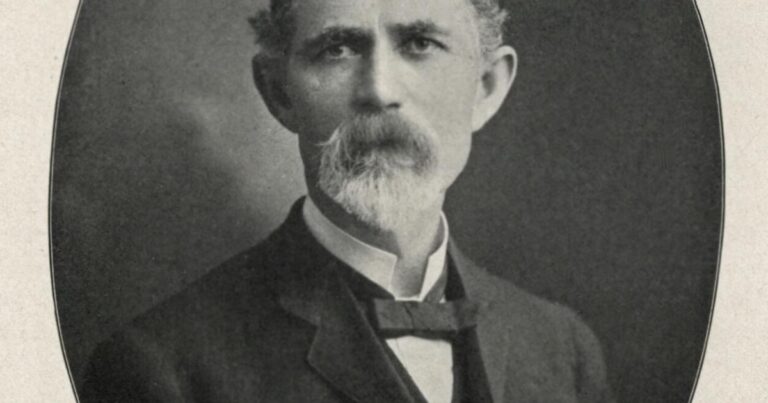During the last quarter of the 19th century and the beginning of the 20th century, Samuel Wardell Williams was one of the most famous lawyers practicing in Vincennes.
Wardell participated in many important cases as a trial lawyer and achieved great success. He became further involved in politics, and when he served as the National Party's vice presidential candidate in the 1908 election, he remained a footnote in U.S. history.
Samuel Wardell Williams was born February 7, 1851, in Mount Carmel, Illinois, to Fleming and Elmira Wardell Williams, both natives of New York. His father became an important lawyer in Wabash County.
Williams received his initial education in public schools and then entered Friendsville Academy in Friendsville, Illinois, from which he graduated in 1867, with the goal of becoming a Presbyterian minister. He then changed his course after being appointed deputy county clerk. Wabash County, which he held for two years. He lived for a time in Gibson County, where he was clerk and bookkeeper for the Hazleton Company. He then decided to emulate his father and become a lawyer.
Williams moved to Knox County around 1869 and took a course at the Mississippi Valley Business College in Vincennes. Later, he needed money, so he took up a job as a traveling salesman in a wholesale grocery business and took a law book to study.
As was the custom of the time, Williams “read law” at the established law firm, the firm of Coorson & Boyle (Henry Coorson and John Boyle), and was finally admitted to the bar on 12 February 1874. After that his career began. upward trajectory.
He became a partner for a time with John Wilhelm at Williams & Wilhelm.
When he began practicing law, his office was located in what was then known as Green's Opera House on the corner of Second and Buceron Streets. He then moved to his office on the northwest corner of 7th and Broadway Streets, and then on Main Street.
Originally a Democrat, Williams served as a deputy prosecutor for Indiana's 12th Circuit and was elected prosecuting attorney for Knox County in 1877, serving for two years.
In the same year, he ran for mayor of Vincennes, but lost. In 1882 he was elected to the State Legislature, which he served for two terms, and after proving himself a very effective legislator, he returned to private practice.
Williams played a role in many important local court cases. In 1878, Williams defended murderer Henry Varner, and although Varner was found guilty, he succeeded in getting his client sentenced to life in prison instead of the death penalty, but the case led to death threats against the lawyer. It turned out to be unpopular. Mr. Williams is described in Goodspeed's History of Knox and Davis Counties, Indiana, published in 1886. Williams is celibate, an ascetic, an Episcopalian, and a good judge of men and cigars. Young, active, full of energy, positive in his beliefs and ideas, he has many warm friends and some hated enemies. ” He had a brief marriage that ended in divorce.
Williams eventually became dissatisfied with the Democratic Party and left the party in 1884. He helped form the People's Party, a left-wing agricultural party, in 1892. In 1904, he lost his party's presidential nomination to Thomas E. Watson of Georgia. , but in 1908 he was on the Populist Party ticket as a vice presidential candidate, with Watson at the head. On July 15, his nomination was officially announced in front of a large and enthusiastic audience at the Grand Opera House in Vincennes. In the fall election, the two received just 28,376 votes (and just 27 in Knox County). The race was won by Republican William Howard Taft. This election marked the end of the Populist Party, and Williams returned to practicing law.
Samuel Wardell Williams died in the early morning hours of August 5, 1913, at Good Samaritan Hospital from an attack of appendicitis and subsequent surgery. He was 62 years old. His burial was in Greenlawn Cemetery.


